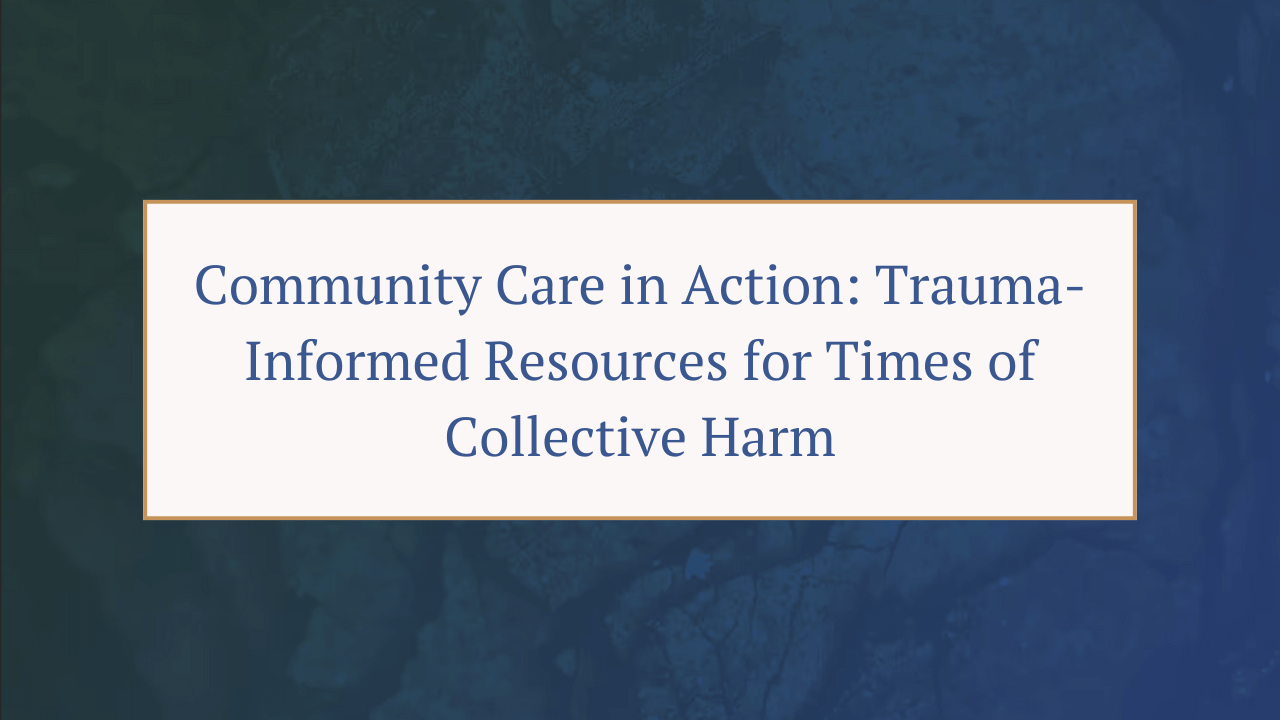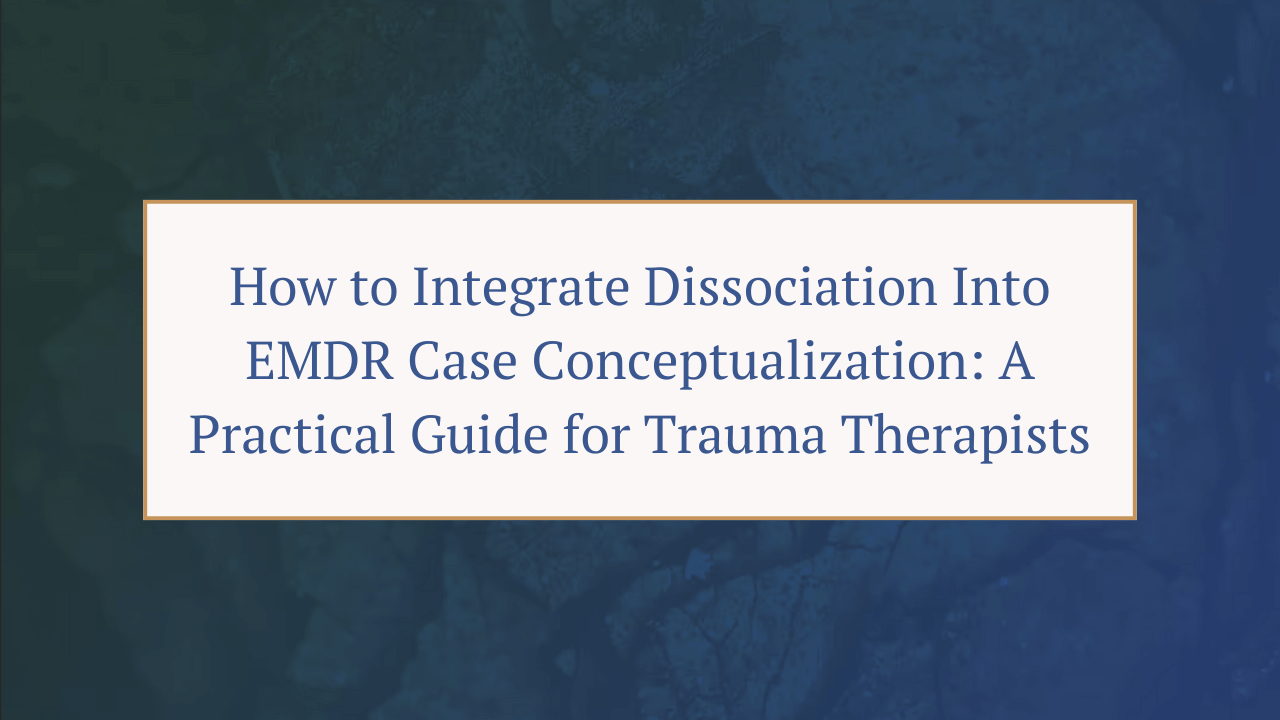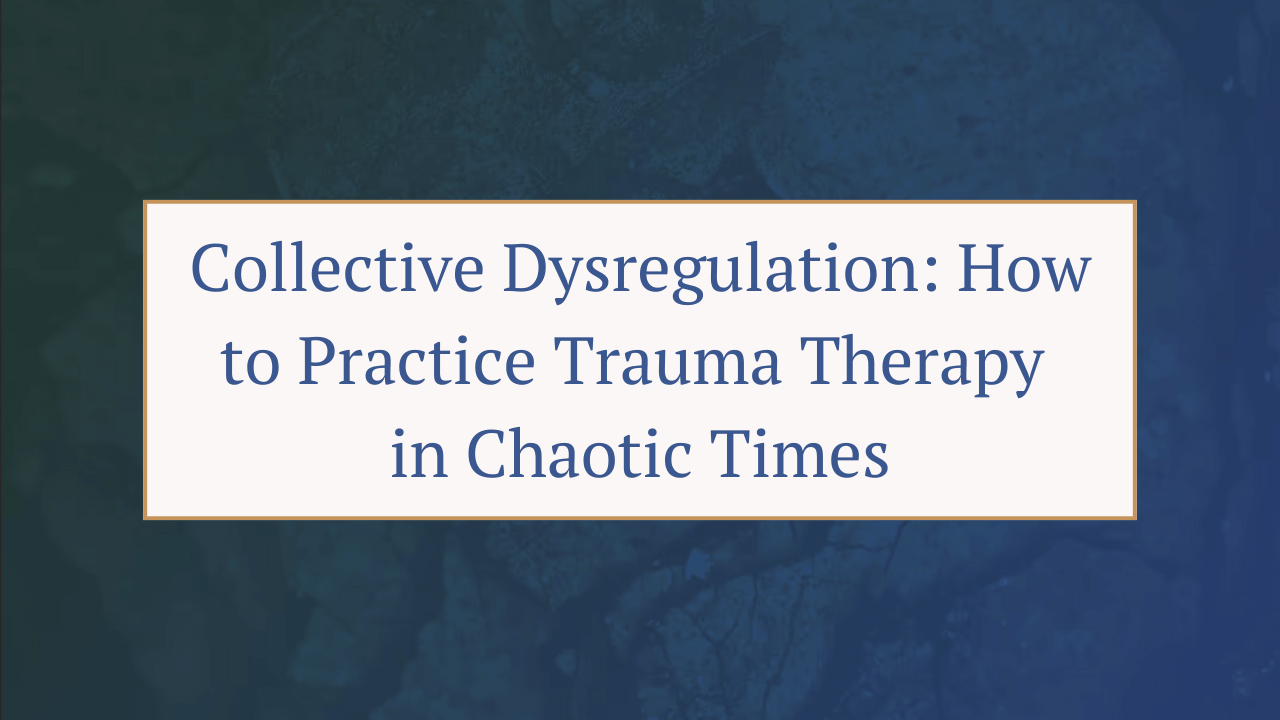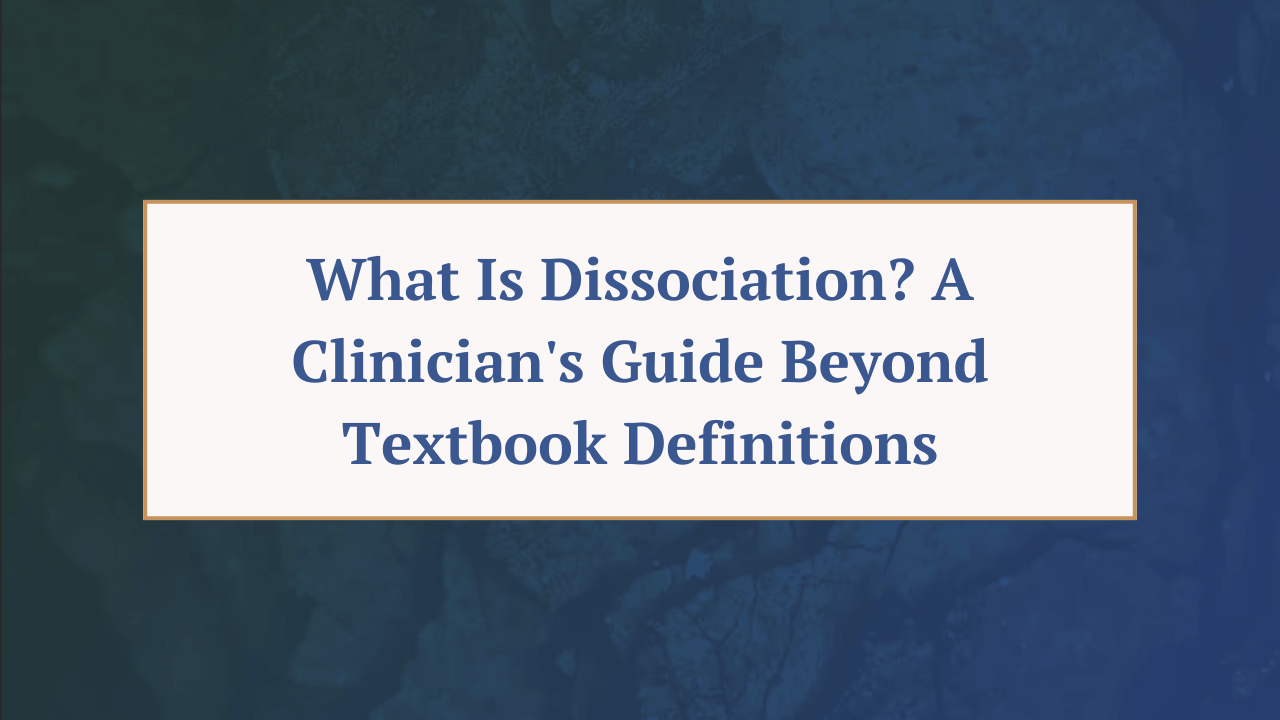Mastering Mental Health Therapy: Essential Skills and Strategies
Jun 13, 2025
In the ever-evolving field of mental health therapy, mastering essential skills and strategies is more critical now than ever. Therapists and counselors are increasingly relied upon to navigate complex emotional landscapes while adapting to new technologies and methodologies. As the demand for qualified mental health professionals grows, understanding the educational pathways and professional development opportunities becomes crucial.
The significance of online master's programs has skyrocketed, offering flexibility and accessibility to aspiring therapists worldwide. These programs provide a unique blend of theoretical knowledge and practical experience, making them an attractive option for many. Choosing the right program involves considering factors such as accreditation and the balance between clinical experience and coursework.
This article explores the critical components of mastering mental health therapy in 2025, from selecting the right educational program to understanding the role of certifications and ongoing professional development. It highlights notable institutions and programs, delves into therapeutic strategies, and offers insights into future trends within the field.
Understanding the Evolving Landscape of Mental Health Therapy
The field of Mental Health Counseling is experiencing significant growth, with demand expected to increase by 18% through 2032. This surge is fueled by both a heightened awareness of mental health issues and legislative changes that have expanded access to mental health insurance coverage.
Key Components of Mental Health Counseling Programs:
- Core Subjects: Programs focus on human development, psychotherapy, and diversity, equipping students with the skills needed to address a wide array of client needs.
- Licensure Preparation: Programs like the Master of Science in Counseling are designed to prepare graduates for licensure as Licensed Professional Counselors, offering pathways into private practice and other professional settings.
- Field Experience: Hands-on clinical practice is a vital part of training, ensuring graduates are ready for the practical demands of the profession.
Despite this growth, a significant shortage of qualified mental health professionals remains, particularly in states like Texas. This underscores the urgent need for more graduates from mental health counseling programs.
As the industry evolves, mental health therapy continues to offer promising career opportunities for those committed to making a difference in the field.
Advantages of Online Learning for Aspiring Counselors
Online clinical mental health counseling programs offer aspiring counselors a pathway to achieve their educational and professional goals with unmatched flexibility. Universities like Liberty University equip students with essential career skills through comprehensive online learning modules, catering to the increasing demand for mental health services partly due to broader insurance coverage for such issues.
Institutions such as Southern New Hampshire University provide a hybrid approach, offering 90% of their coursework online while incorporating face-to-face residencies. This format ensures students develop necessary in-person skills essential for clinical practice. The curriculum is designed to impart a strong theoretical understanding of wellness, relationship building, assessment, treatment, cultural competence, and ethical practices, forming a solid foundation for future counselors.
Additionally, programs like those from Walden University offer a blend of immersive online and in-person learning, allowing students to practice and refine key counseling skills in a supportive environment. Personalization in these programs helps students tailor their studies to match their career ambitions, while continued engagement and confidence-building form critical parts of the learning experience.
Key Features of Online Programs
Online master's programs in clinical mental health counseling are designed with key features that enhance the learning experience while maintaining flexibility. These programs typically allow for remote completion of a significant portion of the coursework, catering to students' varying schedules and locations. This flexibility makes education more accessible to a diverse range of students who may not have the opportunity to attend traditional campus-based classes.
Many of these programs utilize a hybrid structure, where approximately 90% of the coursework is completed online, complemented by periodic in-person residencies. This model ensures that students receive essential practical skill development necessary for clinical settings. Accreditation, such as that provided by the CACREP, is a crucial component, assuring that the programs meet rigorous academic standards, which is vital for students who are on the path toward professional licensure.
Moreover, online programs include options for practicum and internship experiences that can be organized locally, allowing students to gain practical experience in real-world settings. Another significant feature is the availability of specializations within the curriculum, enabling students to focus their studies on specific career interests within the mental health counseling sphere, thus broadening their career opportunities post-graduation.
Selecting the Right Program
Choosing the right mental health therapist course is essential for your success in the mental health counseling career. One of the first considerations is the program's accreditation status, such as CACREP accreditation, which guarantees the program meets the highest educational standards. Another factor includes the learning format; whether the program offers online courses or in-person sessions can significantly impact your learning experience and convenience. The best programs like Counseling@NYU provide flexible pathways, whether you're looking to focus broadly on mental health counseling or specialize in areas like clinical practice or school counseling. Financial planning is also a key consideration; many institutions offer scholarships and detailed tuition plans. Additionally, the expertise of faculty members can greatly enhance your learning, as experienced professors can provide insight into the practical skills needed in the counseling field. Considering these elements will help ensure you choose a program that aligns with your career goals and supports your journey into the mental health field.
Accreditation: Why It Matters
Accreditation is a vital aspect of selecting a mental health counseling program. CACREP accreditation, in particular, is the primary benchmark for quality in graduate-level counseling education in the United States. Enrolling in an accredited program ensures that the educational curriculum adheres to best practices, which is crucial for securing state licensure as a professional counselor. This endorsement not only confirms the program’s adherence to rigorous academic standards but also enhances a graduate's appeal to prospective employers in the counseling profession. Additionally, attending an accredited program may provide access to a wider variety of financial aid options, making it easier to manage educational expenses. Therefore, accreditation affects both the immediate educational experience and long-term career opportunities, making it an essential factor in program selection.
Balancing Clinical Experience with Coursework
Successfully balancing clinical experience with coursework is critical in mental health counseling education. A comprehensive mental health counseling program often includes a minimum of 700 field hours over three semesters, providing students with practical experience through practicum and internship courses. Clinical training typically begins with a two-semester practicum in the program’s clinic, complemented by advanced coursework in clinical skills. These experiences are designed to blend theoretical knowledge with practical application, allowing future counselors to develop necessary skills in a supervised environment. Students might also have opportunities to participate in supervised fieldwork at various health and human services agencies, which could include mental health centers or community colleges. Such hands-on involvement ensures that students leave the program with a strong foundation of theory and practice, preparing them for success in the mental health field.
Highlighted Programs and Institutions
In recent years, the demand for qualified mental health counselors has increased, necessitating robust educational programs that prepare individuals for this crucial field. Various institutions have developed comprehensive courses catering to those pursuing careers in mental health counseling. These programs not only focus on theoretical knowledge but also emphasize practical skills crucial for effective clinical practice. They incorporate elements such as social justice, diversity, and inclusion, equipping future counselors to meet the diverse needs of the populations they serve. The programs highlighted below offer a mix of online and in-person instruction, focusing on different aspects of the counseling profession.
Role of Certifications and Licensure
Certifications and licensure play a fundamental role in the mental health field by opening doors to varied career opportunities and establishing a recognized standard of professional competency. For roles such as mental health counselors or clinical psychologists, having relevant certifications can significantly enhance job prospects in sectors like healthcare, counseling, and social services. Programs like Walden University's MS in Clinical Mental Health Counseling are designed to align with these professional standards through their accreditation by bodies such as the Council for Accreditation of Counseling and Related Educational Programs (CACREP). Such accreditation is crucial, as it fulfills licensure requirements in many states, allowing graduates to practice legally and effectively. Furthermore, programs such as Boston College’s MA in mental health counseling offer both licensure and non-licensure tracks, ensuring that students meet diverse educational requirements essential for their intended career paths. While graduate programs prepare students for necessary licensing exams, the ultimate licensure approval lies with state government authorities.
Importance of Clinical Mental Health Counseling Licensure
Licensure in the field of mental health is a critical element that ensures practitioners are qualified to provide competent services to clients. Accreditation by bodies like CACREP is integral to licensure, as it guarantees that counseling programs meet the stringent requirements set by state boards. A CACREP-accredited master’s program in clinical mental health counseling provides students with a robust academic foundation, essential for pursuing licensure as a Licensed Professional Counselor (LPC) across various states. These programs encompass a mixture of online and face-to-face learning experiences, equipping students not only with theoretical knowledge but also with practical skills crucial for the workforce. Furthermore, obtaining accreditation from recognized organizations enhances a graduate’s qualifications, potentially earning them credentials such as a Nationally Certified Counselor (NCC), which further bolsters their standing in the counseling profession.
Ensuring Competency and Ethical Standards
In clinical mental health counseling programs, maintaining high competency and ethical standards is imperative. Students are expected to integrate counseling skills with theoretical models, such as cognitive-behavioral theory, during practical residencies to demonstrate their competency. These educational programs require students to apply theory to practice, engage in continuous professional development, and comprehend the nuances of diversity issues, all of which are crucial for preparing effective mental health counselors. Certification as a Certified Clinical Mental Health Counselor (CCMHC) demands considerable dedication, meeting rigorous educational, examination, supervision, experience, and ethical requirements, thereby ensuring exceptional practice standards. Courses on assessment and treatment planning are vital, as they include evaluating professional dispositions and readiness to progress in clinical mental health programs. Emphasizing ethics, these programs incorporate professional orientation and ethical issues into their curriculum, ensuring that students are well-versed in maintaining high ethical standards in their practice.
Continuing Education and Professional Development
Continuing education is a critical component for mental health therapists aiming to maintain their licensure and enhance their professional practice. It involves a wide range of opportunities for learning that allows mental health counselors to stay updated with the latest developments in the mental health field. Through courses that encompass intermediate to advanced levels, mental health professionals can refine their practical skills and deepen their understanding of Counseling Theory as well as new therapeutic approaches. Online courses provide a flexible learning environment, making it easier for counselors in private practice or those engaged in busy schedules to acquire essential knowledge. Furthermore, the relevance and effectiveness of continuing education depend on the course content, the expertise of instructors, and how well these align with the professional goals of the learners.
Opportunities for Ongoing Learning
Opportunities in continuing education are vast, providing mental health therapists with a dynamic platform to expand their expertise. For instance, Walden University’s master’s program in Clinical Mental Health Counseling offers immersive learning experiences through both virtual and in-person formats. This approach allows students to develop and refine their counseling skills effectively. At Palo Alto University, the program places emphasis on elements such as mental health, wellness, social justice, and vocational development, crafting graduates into impactful leaders in the counseling profession. Advanced learners can benefit from specialized courses that delve into specific therapies, mental health research, and preparation for certification in the field. A typical 60-credit master’s program in mental health counseling combines observation and interaction with experienced faculty, enriching students' field experience and preparing them for diverse counseling challenges. These programs are meticulously designed to cover comprehensive areas including development theory, treatment plans, addiction counseling, and addressing the needs of diverse populations.
Mastering Therapeutic Strategies
The art of mastering therapeutic strategies in mental health counseling revolves around a deep understanding of professional ethics and counseling theories. Central to this mastery is enrolling in programs like the Master of Science in Clinical Mental Health Counseling, which is designed to inculcate a strong professional counseling orientation. This CACREP-accredited program provides students with a robust theoretical base, crucial for developing effective therapeutic strategies applicable in diverse settings. As these strategies are honed through rigorous academic and practical training, students are equipped with the necessary skills to create evidence-based treatment plans aimed at promoting mental wellness. Within this program, online courses offer a flexible yet comprehensive platform where experienced faculty impart critical insights, making it possible for students to translate counseling concepts into practical strategies that benefit real-world populations.
Trauma Release Techniques
Understanding trauma requires a detailed, informed approach that considers both the neurobiological and psychological aspects of the experience. Trauma Release Techniques often integrate body-centered interventions, recognizing that the body's innate healing capacities can be pivotal in processing trauma. A neurobiologically-informed approach emphasizes the role of implicit memory—how trauma is stored and can be recalled in the body—which is essential for tailoring effective trauma treatments. By applying mindful interventions, therapists can help clients regulate their nervous system, facilitating an environment conducive to healing.
The integration of neuroscience into trauma therapy enhances the potency of therapeutic techniques. This intersection allows practitioners to leverage advanced insights into how the brain processes trauma, thus offering cutting-edge strategies to clients. Courses specializing in crisis and trauma often explore these psychological complexities, revealing various intervention models that can be adopted to address trauma's impact comprehensively.
Emotional Synchrony in Therapy
Although specific studies on Emotional Synchrony in Therapy were not directly provided, the concept broadly encompasses the connection between therapist and client through emotional attunement. Emotional synchrony plays a crucial role in enhancing the therapeutic alliance, creating a foundation of trust and understanding. Techniques such as Emotionally Focused Individual Therapy (EFIT) rely heavily on this synchrony to improve relationships within therapy sessions, allowing for more profound client engagement.
Therapists practicing emotionally focused approaches maintain a level of emotional attunement that facilitates effective interventions. By fostering a synchronized emotional environment, therapists can offer a supportive therapeutic space, which may lead to improved outcomes for clients. Approaches like Internal Family Systems (IFS) and Eye Movement Desensitization and Reprocessing (EMDR) utilize emotional connections, leaning on synchrony to delve into and address deeper emotional layers, thereby facilitating healing and growth.
Conclusion: Combining Education and Practice for Success
In conclusion, the synergy between education and practical fieldwork is essential for success in clinical mental health counseling. Degree programs, such as the ones offered by SNHU, are meticulously designed to align with the educational and licensure requirements of the counseling profession. These programs provide a robust foundation that prepares students for both professional counselor exams and clinical practice.
The counseling field is experiencing significant growth, with expanding career opportunities anticipated through 2032. Students are equipped with practical skills and hands-on experience through fieldwork, which is embedded in the curriculum. These experiences are crucial for understanding key aspects such as crisis intervention and community-focused counseling.
To progress from a general counseling field to specialized areas, graduates can follow state-specific pathways and meet board requirements. Such pathways ensure that students acquire not only theoretical knowledge but also essential skills required for private practice and other specialized roles.
In summary, combining quality education with rigorous field experience is paramount for success in the mental health field. This combination ensures that aspiring mental health counselors are well-prepared to meet the demands of their profession and contribute meaningfully to the well-being of their communities.
Future Trends and Considerations in Mental Health Therapy
As the field of mental health therapy evolves, several key trends and considerations are shaping its future. The demand for mental health counselors continues to grow, with an anticipated 18% job growth through 2032, according to the U.S. Bureau of Labor Statistics. This surge is driven by an increased awareness of mental health issues and the need for accessible therapeutic services. Clinical mental health counseling programs are increasingly emphasizing the delivery of competent, ethical, and culturally sensitive services to diverse populations. Graduates with a master's in counseling not only gain a robust educational foundation but also obtain various certifications and licenses, paving the way for careers as professional and mental health counselors. As the field expands, there is a critical shortage of qualified professionals, notably in states like Texas, which underscores the importance of developing more programs to meet this demand.
Emerging Strategies for Therapy in a Digital World
The digital revolution has significantly influenced the landscape of mental health therapy, prompting the emergence of new strategies. Online master's programs in clinical mental health counseling have become increasingly prevalent, preparing students to apply therapeutic skills in diverse, digital learning environments. These programs utilize digital platforms that facilitate collaborative, real-time learning with distinguished faculty, providing a comprehensive understanding of mental health therapy. The flexibility of online learning enables students to specialize in particular areas, advancing their careers while balancing personal and professional obligations. Furthermore, online counseling courses emphasize key skills such as wellness theory, cultural competence, and digital ethical practice, allowing future counselors to meet the evolving needs of their clients in a technologically advancing world.
Adapting to Client Needs in 2025
Adapting to the diverse needs of clients is paramount for mental health counselors, a trend that is expected to intensify by 2025. Programs like Counseling@NYU are leading the way in this regard, equipping counselors to work with both children and adults across various settings. The Master of Science in Counseling program emphasizes critical skills such as human development, psychotherapy, and clinical assessments, which are essential for addressing the complex needs of clients. Emphasizing a client-first perspective is crucial for delivering quality care, ensuring effective outcomes, and maintaining ethical standards in counseling practices. Mental health counselors are often expected to address a wide range of issues, including disabilities, behavioral disorders, and emotional problems, using both verbal and behavioral methods in therapeutic sessions. The projected 19% job growth for mental health counselors by 2033 highlights the increasing demand for professionals who are adept at meeting these diverse and evolving client needs.
Stay connected with fun info, news, promotions and updates!
Join our mailing list to receive the latest news and updates from our team.
Don't worry, your information will not be shared.





